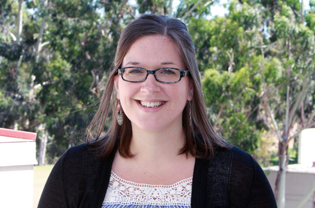Incarceration has no effect on nonresident fathers’ parenting

Incarceration has no effect on nonresident fathers’ parenting
- December 10, 2013
- Findings published in December issue of American Sociological Review
 A prison sentence may not always have negative consequences for children of the incarcerated,
says UCI sociologist Kristin Turney. In a new study, she finds that when an uninvolved
dad spends time behind bars, there are no negative effects on his parenting.
A prison sentence may not always have negative consequences for children of the incarcerated,
says UCI sociologist Kristin Turney. In a new study, she finds that when an uninvolved
dad spends time behind bars, there are no negative effects on his parenting.
“To date, most research shows that incarceration has detrimental effects on family life,” she says. “But we find that there is considerable variation in these effects.”
Turney and co-author Christopher Wildeman, Yale University, analyzed data from the Fragile Families & Child Wellbeing Study, a longitudinal study conducted from 1998 to 2000 involving nearly 5,000 mostly unmarried parents of children born in urban areas, many of whom are economically disadvantaged. Over the course of the survey, almost half of the dads spent time in prison or jail.
The researchers found negative and pronounced effects of incarceration on fathers’ engagement with children and co-parenting with children’s mothers, but only when fathers were living with their children prior to incarceration. When fathers weren’t living with their children prior to their stint behind bars, their incarceration had no effect on how they interacted with their children during or after release.
The findings, published this month in the American Sociological Review, go against popular beliefs that incarceration is uniformly bad for individuals and families.
“When mom or dad goes to prison, the whole family can suffer,” she says. “But these negative effects—at least on fathers’ parenting—only exist when fathers are living with children prior to incarceration. Those are the fathers who are likely to be involved with their children in the first place.”
They also found that mothers are likely to move on to new partners in the face of a biological fathers’ incarceration, potentially offsetting some losses in the involvement of the biological father.
The findings have implications for policy makers, says Turney.
“Policymakers need to be attentive to the fact that incarceration affects different
individuals in the family in complex—and often countervailing—ways,” she says. “Policy
should aim to find ways to keep families connected during incarceration, and also
address challenges that occur upon release.”
Share on:
Related News Items
- 5 takeaways from a conference on free speech in higher ed
- The President's Day: Managing Time in the Oval Office
- UC Irvine graduate programs in social sciences recognized among nation's best in U.S. News & World Report rankings
- Using her voice
- Orange County Supervisors to consider calling for review of Do plea deal


connect with us: